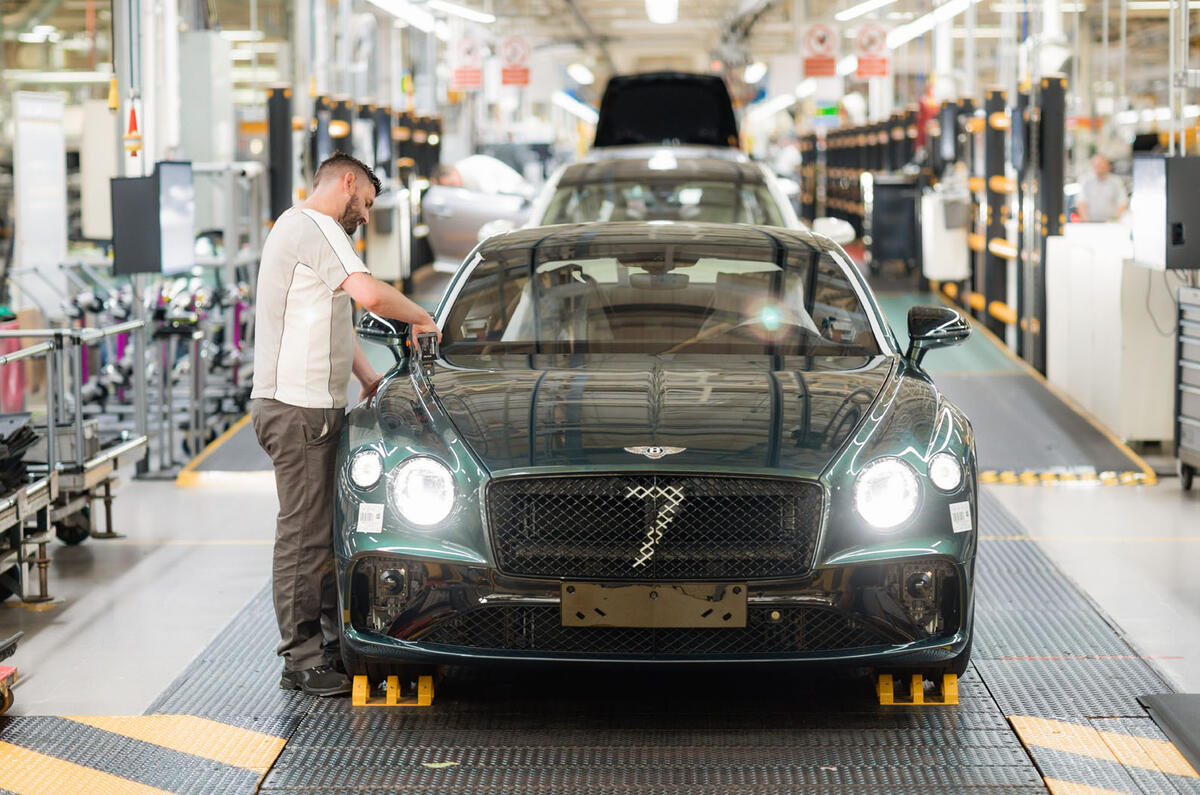UK-made vehicles imported into the US will be hit with a reduced tariff of 10%, president Donald Trump has announced, but only for the first 100,000 cars exported.
It follows more than a month of negotiations between British and American officials after Trump announced sweeping import tariffs on foreign-made products, including a 25% tariff on new cars.
All tariffs were due to start on 1 April, but a 90-day reprieve was given so that negotiations could take place.
Details on the new deal are currently sparse, but the US confirmed that the 10% tariff - which brings it in line with the levy on other foreign goods – will apply to "100,000 cars", suggesting that anything over that number will be hit by the higher 25% rate. Previously, before Trump's March announcement, the tariff was 2.5%.
Prime minister Keir Starmer said the 10% rate represented "a huge and important reduction" and confirmed that "we have scope now to increase that quota; this is not final".
Last year, the UK sent some 102,000 cars to the US. The US is the British car industry's second largest export market, behind the EU. It received 27% of all UK-made vehicles in 2024, accounting for some £9 billion a year.
No details were given on the proposed 25% tariff on car parts, which was due to begin in the coming months.
While details have yet to be fully confirmed, new deals on food, chemicals, machinery and industry have been struck. Tariffs on steel and aluminum have been reduced to 0%.
The UK is the first nation to reach an agreement with the US following president Trump's tariff announcement in March. China will be the next, according to American officials.
Announcing the deal from the White House, Trump said: "I’m thrilled to announce a breakthrough trade deal. The agreement with one our closest and most cherished allies.
"Final details are being written up and will be detailed in the coming weeks."
He added that the deal gets rid of many unspecified UK tariffs that “unfairly discriminated” against US, saying: “They are opening up their country. Their current is a little closed."
Starmer said: "This is a really fantastic, historic day – a real tribute to the history we have of working together. This [deal] is going to boost trade."









Join the debate
Add your comment
Temporarily increase the product price, then mark it 'on offer' a couple of weeks later at the price it was before.
What a con.
So to keep tariffs small in moneytary terms the way forward would be to export and store in the following order Rolls Royces, the new Jag, Range Rovers then the cheapest Mini's, good luck getting BMW to agree to that. Dumb deal, badly thought out.
This is not how you beat bullies. Trump needs to be ignored or stood up to, not coddled and pandered to when he has an economic tantrum.